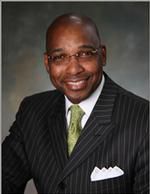If you’re lucky, you’ve never experienced the anxiety of being pulled over by a policeman. Regrettably, if you’re reading this, you’re most likely aware of this feeling. Every day, thousands of drivers across the United States are pulled over for traffic violations and misunderstandings. Although many of them are guilty of some sort of infraction—countless others are dragged, coerced, or confused into accepting guilt without having done anything wrong.
Knowing Your Driving Rights May Help Avoid Unlawful Questioning and Accusations
Every driver, no matter how he drives, is guaranteed specific rights by the U.S. Constitution. The Fourth Amendment guarantees that drivers (and passengers) are protected against unreasonable searches and seizures by the police, while also protecting their right to privacy. This means that officers are limited in what they can do and say to a “suspect” once they have pulled him over. However, many drivers are unaware of these limitations and proceed to incriminate themselves by answering questions that the police do not have the right to ask.
It is important for your future to not only follow the rules of the road, but to also know how to avoid self-incrimination or miscommunication by knowing what officers can and can’t ask of you.
Lawful Virginia Traffic Inquiries
- Ascertain identity and ask for proof of identification.
- Verify legal ability to drive (ask for a license).
- Question whether the driver has the right to drive the vehicle that he is in.
- Request proof of insurance (ask for vehicle registration).
...that’s it!
Although they may discover something in your records that may give them probable cause to question you further, without evidence they can’t pursue any more questions. Therefore, you do not have to (nor should you) answer any questions concerning
- Where you have been.
- Where you were going.
- What you have been doing.
- Why he pulled you over.
...or anything else. You should politely refuse to answer, stating that you’re uncomfortable with the question.
Although police are limited to the types of questions they can ask, and you have the right to refuse to answer unlawful questions, you still have a responsibility to be cooperative and polite. Otherwise, disregard for etiquette could create an excuse for the officer to fine, arrest, or charge you with a variety of violations. This disregard can then be used to lawfully instill a reason for interrogations and searches. Don’t give them what they need to bypass their limitations—stay calm and polite, but also assertive when it comes to answering questions that you’re not comfortable with.
If you believe you or a loved one was unlawfully questioned or coerced into answering unlawful questions which led to his arrest, contact us today at 703-865-6610 to set up an appointment and to see how Easley can help secure justice for you and your family.
|
Related Links: |


